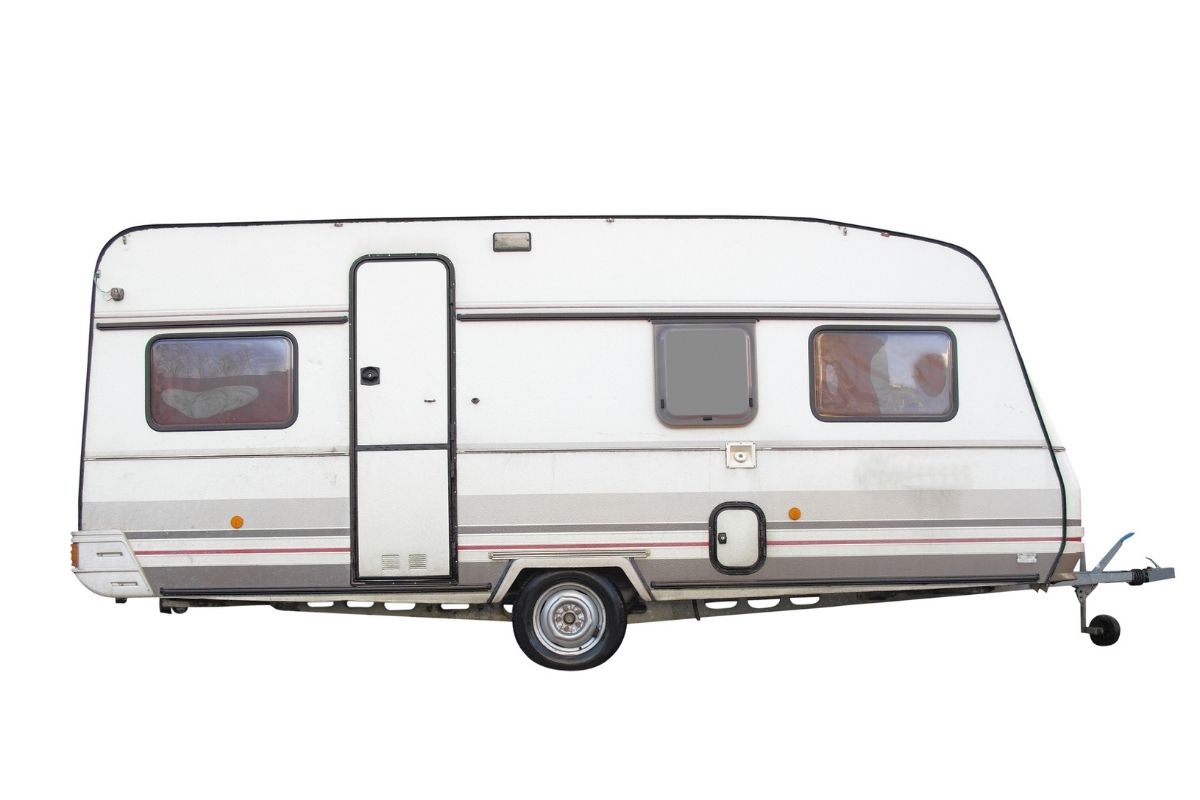Discover How To Use The Power of Authority Marketing To Make You Money While You Adventure!
No Experience, Existing Product Or Technical Skills Are Required
DO YOU BELIEVE ADVENTURES ARE WORTH CHASING?
We're an affiliate.
We hope you love the products/services we recommend on Just Van Life! So you know, there is the possibility we will collect a commission should you make a purchase via any of our links. This will in no way affect the purchase price. Thank you for your support, we really appreciate it!
Trailer brakes are designed to slow down or stop a vehicle from moving forward. They are usually found at the rear of a truck or car.
Trailer brakes are activated by hydraulic pressure. The fluid enters into the brake chambers through a pipe called a master cylinder.
When the driver presses the brake pedal, the master cylinder sends the fluid to the brake chambers. This causes the brake shoes to clamp onto the wheel rims.
As soon as the wheels lock up, the weight of the vehicle is transferred to the trailer, and it slows down.
In this article, we will uncover how trailer brakes work, so you have a better understanding of this system for your own vehicle.
Types Of Trailer Brake Systems

Trailer brakes are classified based on what kind of system they use. There are three major categories: drum brakes, disc brakes and vented disc brakes (also known as ventilated disc brakes).
Each category offers its own set of benefits and disadvantages. Here we will look at each type of trailer brake.
Drum Brakes
A drum brake uses a rotating cylinder or drum to slow down the wheels. It consists of a series of brake shoes attached to the end of a rod. As the drum turns, the brake shoes slide along the surface of the drum and press against the wheel rim.
To stop the vehicle, the driver simply steps on the brake pedal. If the brakes fail, the trailer could roll away and cause serious injuries or even death.
Disc Brakes
Disc brakes work by compressing a disc shaped plate into contact with the wheel rim. Usually, they are typically found on larger vehicles like trucks. They are typically more powerful than drum brakes. They can be operated manually or automatically.
Automatic disc brakes have been around for decades. In fact, they were invented back in the early 1900s. Today’s automatic disc brakes are very sophisticated and include many safety features. They are also much quieter than manual disc brakes.
Vented Disc Brakes
A vented disc brake has a disc shaped plate with holes drilled through it. Air pressure pushes the disc towards the wheel rim. Unlike other disc brakes, vented disc brakes don’t need any mechanical components to operate.
Instead, air pressure is used to create friction between the disc and wheel. The result is a braking force that’s comparable to that of a drum brake.
Trailer Brake Systems

There are three different trailer brake systems that you can use. These include hydraulic, electric and electric over hydraulic (EOH) which is a combination of the two. Below we have given you a brief guide to all the systems.
What Is A Hydraulic System?
A hydraulic system uses pressurized oil to power all sorts of devices. It’s used in everything from your car’s transmission to your lawn mower. You may have seen them on construction sites, where they use them to raise heavy objects like cranes.
Hydraulics are very reliable because they don’t need electricity to operate. They also make things easier for you. For example, if you want to turn off your lights, you just flip a switch instead of having to run an electrical cord out of your house.
Hydraulic systems are made up of two main parts: the pump and the reservoir. Your car has one of these. In fact, most cars have two pumps so that you can drive with one hand while pumping the other.
Pumps move the liquid around, and the reservoirs store the liquid until needed.
When it comes to breaking, the braking process is not instantaneous but takes time because the friction between the brake pads and the wheel rim must be overcome before the vehicle can come to a complete halt.
Electric Trailer Brakes
An electric trailer brake works by using a motor to generate electricity. This electricity powers a solenoid valve that opens and closes to release fluid into a chamber located inside the wheel. The fluid then travels through tubing to the calipers.
Once there, it exerts pressure on the brake pads. The result is similar to what happens when you apply a standard drum brake.
Some electric brake systems will use a controller that is located on the brake pedal. It is this controller that senses when braking is being applied and activates all the other brakes.
The advantage of this type of brake is that it doesn’t require any maintenance. However, it does cost more than a traditional trailer brake.
Electric trailers are also less powerful than their hydraulic counterparts. That means they won’t stop as quickly.
Elastic Over Hydraulic Brakes
An EOH brake combines both hydraulic and electric technology. It works by using fluid pressure to actuate the brakes when the driver presses down on the pedal.
Then, once the brakes are engaged, an electric motor powers the hydraulic pump. This allows the driver to control the speed at which the brakes engage.
This type of brake is commonly found on recreational vehicles such as ATVs or UTVs. It’s also popular among truck drivers who want to avoid the hassle of replacing their worn-out drums.
How Long Do Travel Trailer Brakes Last?
Trailer brake systems last anywhere from 10 years to 20 years, depending on how often they’re used. If you take care of your brakes, they’ll last much longer. To keep your brakes working well, check them regularly and replace them every few years.
If you do decide to purchase new brakes, remember to get ones that fit your specific model. Check the manufacturer’s website to find out what size brakes are required for your RV. Also, look for brakes that offer good stopping power.
Conclusion
As you can see, there are various different trailer braking systems, and they all work slightly differently. You have three main trailer systems to choose from, and they all generate energy to your brakes, for you to be able to stop.
We hope you have enjoyed this guide and have a better understanding of how trailer brakes work. Thank you for reading!
Discover How To Use The Power of Authority Marketing To Make You Money While You Adventure!
No Experience, Existing Product Or Technical Skills Are Required
DO YOU BELIEVE ADVENTURES ARE WORTH CHASING?
